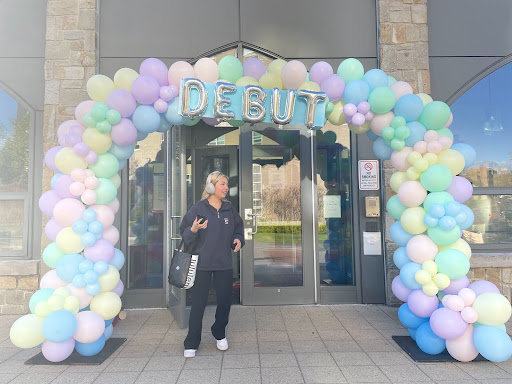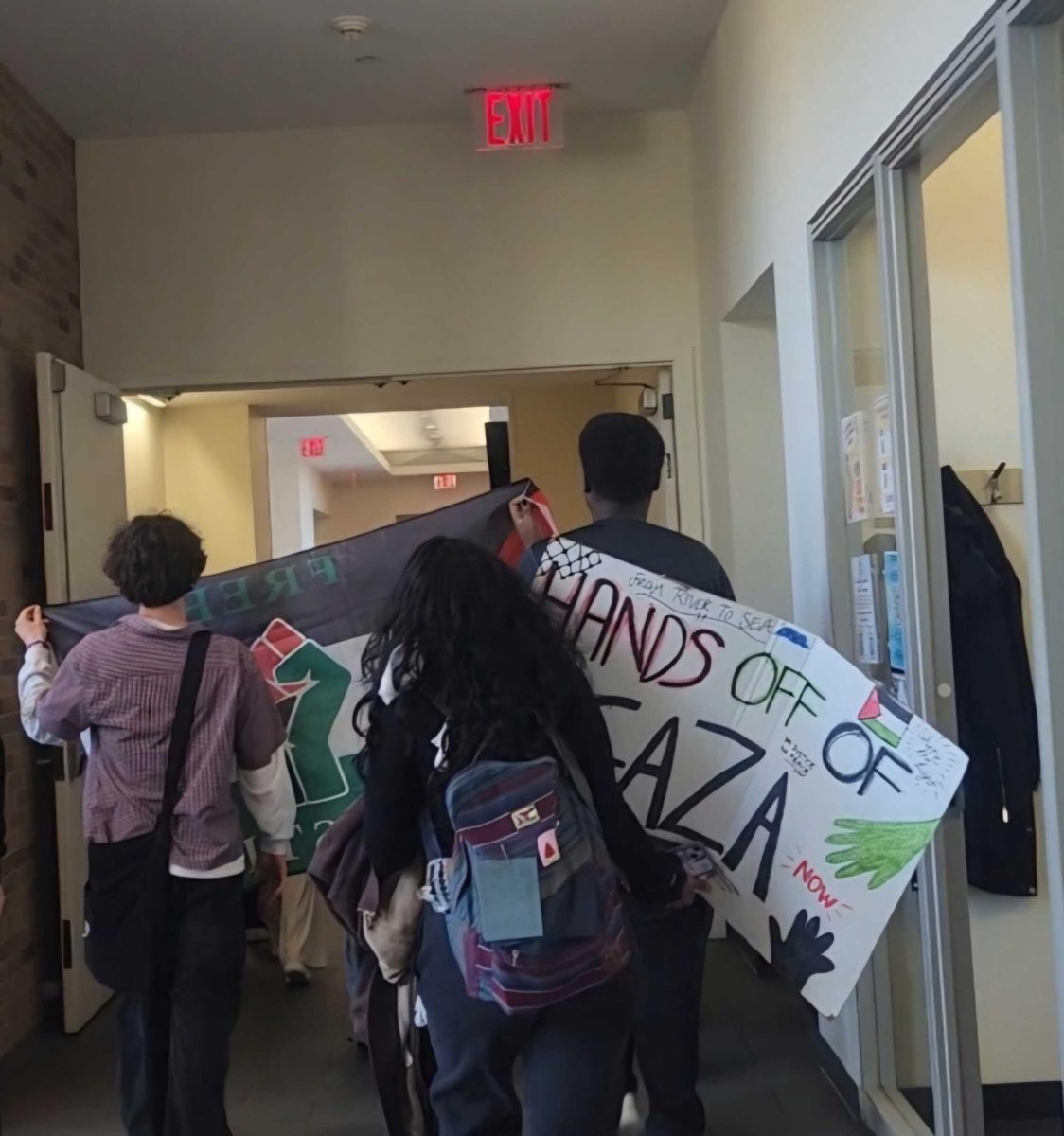
Torch Photo / Sara Kiernan
The 2022-2023 academic year at St. John’s University opens with a yearly undergraduate tuition rate raised by four percent, according to the University’s website. The Fall/Spring block (12-18 credits per semester) base tuition for distance and traditional learning students on the Queens and Manhattan campuses now equal $46,230 per year ($23,115 per semester) a rise from last year’s base tuition of $44,450 ($22,225 per semester).
Tuition of juniors and seniors at the Peter J. Tobin College of Business also saw an increase to $48,208 per year ($24,104 per semester) as opposed to last academic year’s yearly tuition of $46,354 ($23,177 per semester). Pharm. D. students between years three and six are now required to pay a yearly tuition of $52,934 ($26,467 per semester) increasing from last year’s $50,898 tuition ($25,449 per semester).
The Staten Island campus also saw an increased tuition this year following the announcement of its closure. Base tuition is now $33,000 per year ($16,500 per semester) for traditional students and $34,978 ($17,489 per semester) for juniors and seniors in the Peter J. Tobin College of Business, increasing from last year’s tuition of $31,730 ($15,865 per semester) and $33,634 ($16,817 per semester).
Courses taken in the Summer and Winter sessions are billed at a per credit rate. This year’s base tuition per credit reached $1,541. Per credit tuition of years three and four Peter J. Tobin College of Business students and years three to six Pharm. D. students increased to $1,607 and $1,764 respectively. On the Staten Island campus, per credit tuition for traditional students is $1,100 and $1,166 for juniors and seniors in the Peter J. Tobin College of Business.
The Torch spoke to a few students on the Queens campus about the raised tuition.
“As someone who dorms on campus, it’s definitely disappointing to see a price hike in our tuition. I’m hopeful that the money we spend on school shows us some form of payback in the near future,” said Sean Fleming, a sophomore cybersecurity student. “Since the new medical building won’t be completed until just before I graduate, it would be nice to see some new additions to the campus in the meantime.”
Fleming referenced the Health Sciences Center that is currently under construction. The project involved demolishing St. Vincent Hall and replacing it with a new academic building. The Health Sciences Center is set to house the University’s undergraduate nursing program, which accepted its first batch of students this year.
Based on estimates from a professional firm and a construction manager, the University estimates the project will cost roughly $78 million. To fund the Health Sciences Center, the University has been awarded a $5 million New York State Higher Education Capital Matching Grant (HECap), according to a press release.
In addition to the HECap grant, the University has already received significant endowments that will be used to fund the Health Sciences Center. Margaret La Rosa D’Angelo and Peter P. D’Angelo pledged to donate $20 million to the University in June, marking the largest donation in the school’s history. Of that $20 million, $15 million will be used for the construction of the Health Sciences Center.
The D’Angelo’s donation is not the only one made to support the Health Sciences Center, and the University plans a fundraising campaign in 2023 to fund capital investments, according to a recap of the May 2022 Board of Trustees meeting emailed to students, faculty and staff.
“St. John’s is a strong institution as a result of prudent fiscal management,” said Brian Browne, University Spokesperson in a statement to The Torch. “Nonetheless, we regularly take the necessary steps to ensure continued fiscal stability so that we can maintain and enhance future educational programs and services we offer to our students.”
Although the University is taking extensive action to invest in the future, that might come with disappointing implications for current students. “Personally, an expansion of dining options on campus would be ideal considering the closure of the St. John’s Red Storm Diner,” said Fleming, the cybersecurity student.

Torch Photo / Spencer Clinton
In the two years since the COVID-19 campus forced the closure of college campuses nationwide, dining services at St. John’s have taken a hit. Retail locations, including Taco Bell, in the D’Angelo Center (DAC) were permanently closed last year.
“With on-campus retail food volume projected to be lower than in prior pre-Covid years, Chartwells Dining Services regularly evaluates the number of food outlets that it provides on campus and adjusts accordingly based on student demand and utilization,” University Spokesperson Browne said. “As a result, DAC Room 100 (formerly the DAC first-floor eatery) is now available and creates much-needed space for clubs and organizations to requisition the space for student programming.”
DAC Room 100, formerly the DAC first-floor eatery, was initially used as a COVID-19 testing center for students. As mandatory testing requirements were rolled back by the University, the space opened up for other uses.
In addition to the closure of the DAC eatery, the demolition of St. Vincent Hall forced the closure of the Red Storm Diner, which was located in the basement of the building.
“By extending the daily operation hours of Montgoris Dining Hall to 1 am, the expansive menu options available to students in Montgoris provide more purchasing power than the limited menu that was once available in the now-defunct Red Storm Diner,” Browne added.
However, Montgoris Dining Hall ends dinner service at 10 p.m., according to St. John’s University Dine On Campus. Between 10 p.m. and 1 a.m., the ‘Late Night’ menu is limited to select breakfast foods and grill items.
Beyond students’ concerns regarding campus resources and dining services, they also brought up the dilemma of scholarships and financial aid.
Even after the tuition increases, merit scholarship recipients are rewarded with the same amount as they were in previous years. Alexander Chmiel, a sophomore computer science student, added that “If tuition is going to increase, it would be fairer to increase our scholarships as well.”
The University cites rising costs as a reason for the four percent tuition increase. “Like the families that we serve, the University is managing increased operating costs — such as food, services, and utilities, amid an 8.5% consumer inflation rate,” University Spokesperson Browne said. “Our budget decisions and student financial aid awards are made to efficiently maximize our resources, enabling us to best serve our students.”
It also offers a glimpse into the financial aid afforded to students by the University. “At St. John’s University, 99% of undergraduates receive financial aid and in 2021-2022 the University generously provided $297M of its own institutional dollars to help defray the cost of education,” Browne told The Torch. “A sum of $494M of total financial aid was received by students in 2021-2022.”
The 2022-2023 tuition rates are effective Summer 2022 through Spring 2023. More tuition information can be found on the St. John’s University website.





















